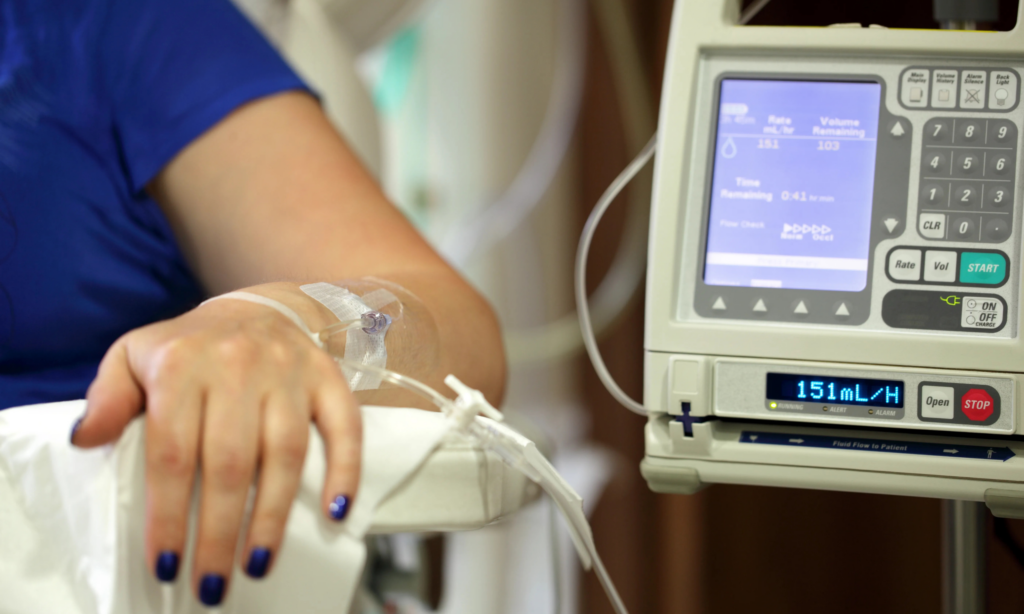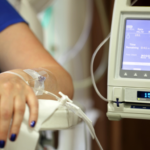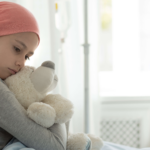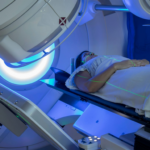
How Chemotherapy Works: Understanding the Science Behind Cancer Treatment
Cancer is a complex disease that requires a multifaceted approach to treatment. One of the most effective and widely used treatments is chemotherapy, which involves the use of powerful drugs to kill cancer cells. It plays a crucial role in treating various types of cancer, either as a standalone therapy or in combination with surgery, radiation, or immunotherapy. In Pune and PCMC, cancer patients have access to advanced chemotherapy treatments at leading cancer care clinics. Dr. Jagdish Shinde, a renowned oncologist in Pune and PCMC, specializes in chemotherapy and provides personalized treatment plans to help patients achieve the best possible outcomes.
What Is Chemotherapy?
Chemotherapy is a systemic cancer treatment that uses drugs to target rapidly dividing cancer cells. Unlike localized treatments like surgery or radiation, chemotherapy circulates throughout the bloodstream, attacking cancer cells wherever they may be in the body. It is particularly effective for cancers that have spread (metastasized) beyond the primary tumor site.
Chemotherapy is used for multiple purposes, including:
- Curing cancer – In some cases, chemotherapy can completely eliminate cancer.
- Controlling cancer – It can slow or stop the growth of cancer cells.
- Palliative care – Helps relieve symptoms and improve the quality of life in advanced cancer cases.
How Chemotherapy Works at the Cellular Level
Cancer cells grow and divide at an abnormally fast rate. Chemotherapy drugs work by interfering with this rapid cell division in several ways:
- Damaging DNA – Some chemotherapy drugs disrupt the DNA of cancer cells, preventing them from replicating.
- Inhibiting Cell Division – Other drugs block the cellular machinery that enables cancer cells to divide and spread.
- Inducing Cell Death (Apoptosis) – Some drugs trigger a natural cell death process in cancerous cells.
Since chemotherapy also affects healthy cells that divide quickly (like those in the bone marrow, digestive tract, and hair follicles), it can cause temporary side effects.
Types of Chemotherapy
Chemotherapy drugs are classified based on their mechanism of action. The most commonly used types include:
- Alkylating Agents – These drugs damage DNA and prevent cancer cells from multiplying (e.g., Cyclophosphamide, Cisplatin).
- Antimetabolites – They interfere with DNA and RNA synthesis, slowing down cell growth (e.g., Methotrexate, 5-Fluorouracil).
- Anti-Tumor Antibiotics – These drugs change the DNA inside cancer cells to stop them from growing (e.g., Doxorubicin, Bleomycin).
- Topoisomerase Inhibitors – They block enzymes needed for DNA replication (e.g., Etoposide, Irinotecan).
- Mitotic Inhibitors – Prevent cancer cells from dividing by disrupting the mitosis process (e.g., Paclitaxel, Vincristine).
Modes of Chemotherapy Administration
Chemotherapy can be delivered in various ways depending on the type and stage of cancer:
- Intravenous (IV) Infusion – The most common method, where drugs are given through a vein.
- Oral Chemotherapy – Pills or capsules taken at home.
- Injection – Administered as a shot into a muscle, under the skin, or directly into the tumor.
- Intrathecal Chemotherapy – Injected into the cerebrospinal fluid to treat cancers affecting the brain and spinal cord.
- Intraperitoneal Chemotherapy – Delivered directly into the abdominal cavity for cancers like ovarian cancer.
Managing Side Effects of Chemotherapy
While chemotherapy is effective in killing cancer cells, it can also impact healthy cells, leading to side effects. Common side effects include:
- Fatigue – A common effect due to the impact on bone marrow and red blood cell production.
- Nausea and Vomiting – Managed with anti-nausea medications.
- Hair Loss – Occurs because chemotherapy targets rapidly dividing cells, including hair follicles.
- Weakened Immunity – Due to reduced white blood cell count, increasing infection risk.
- Mouth Sores – Affect eating and swallowing.
At leading cancer care clinics in Pune and PCMC, oncologists like Dr. Jagdish Shinde provide advanced supportive care to manage these side effects effectively, ensuring patients maintain a good quality of life during treatment.
The Role of Chemotherapy in Cancer Treatment Plans
Chemotherapy can be used alone or in combination with other treatments based on the patient’s condition:
- Neoadjuvant Chemotherapy – Given before surgery or radiation to shrink the tumor.
- Adjuvant Chemotherapy – Administered after surgery or radiation to destroy any remaining cancer cells.
- Combination Therapy – Used alongside radiation therapy or immunotherapy for a more aggressive approach.
In PCMC and Pune, patients undergoing cancer treatment receive comprehensive care with a multidisciplinary team of oncologists ensuring tailored treatment plans.
Why Choose Chemotherapy in PCMC and Pune?
Patients seeking chemotherapy in Pune and PCMC benefit from:
- State-of-the-Art Facilities – Equipped with modern chemotherapy infusion centers.
- Experienced Oncologists – Dr. Jagdish Shinde provides expert chemotherapy treatment tailored to individual patient needs.
- Comprehensive Cancer Care – Personalized supportive therapies, including nutritional and psychological support.
- Latest Chemotherapy Protocols – Access to cutting-edge treatments that enhance effectiveness and reduce side effects.
Summary:
Chemotherapy remains one of the most powerful tools in the fight against cancer. Its ability to target and destroy cancer cells makes it an essential part of many treatment plans. In Pune and PCMC, advanced chemotherapy options are available at leading cancer care clinics, ensuring that patients receive the highest quality care. Dr. Jagdish Shinde, a leading oncologist in Pune and PCMC, provides expert chemotherapy treatments, helping patients navigate their cancer journey with confidence. If you or a loved one is considering chemotherapy, consulting an experienced oncologist can help you explore the best treatment options tailored to your specific needs.




